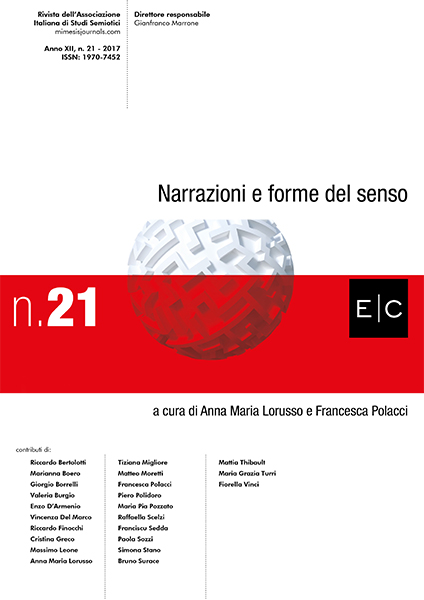The Narrative of Economics
Abstract
A good storytelling in Economics is the basis of accepting, rejecting or imposing an economic theory and always the storytelling is the criterion that can persuade about a specific vision of life in our cultural system. Many semiotic concepts have been developed to describe narratology. The article analyses how a new perspective, that integrates some recent neuroscientific researches with semiotic narrative structure analysis, can enhance the value and the means of the narrative world. The focus is on the dysfunction named Dysnarrativia and on mirror neuron system, because narrative organizes not just memory, but also the whole of human experience. We both organize and constitute our experience of the world through narratives and we accept them by schemata, rather than by empirically checking 'reality', and by their adequacy rather than their logic. Economics adopts a narrative structure to describe and to impose its theories. It adopts tools like equations, axioms, diagrams and words that can be understood by mirror neuron system to explain its theories. At the same time, Economics utilises many metaphors, most of whom have a theological foundation and are included into a storytelling, so the argumentation becomes more persuasive. Therefore, economists are, in fact, sellers on the market of cultural theories and of visions of life and they are so persuasive that they have imposed their narratology. The economic narrative has become “The Narratology”.



